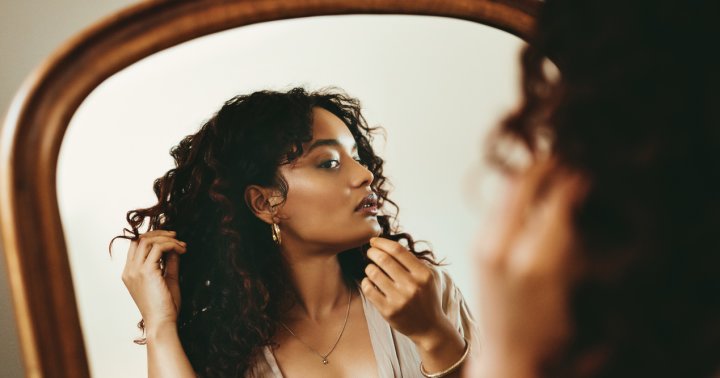In practically every beauty-related conversation I have with friends and family members, hair growth somehow worms its way into the script. It makes sense, considering how many have seen an uptick in shedding since 2020; it’s also common to lose more hair during the summer, specifically around August and September.
And, look, hair loss is a complicated topic, with an array of causes and ways to encourage length. Recently, though, I was chatting with a friend about hair growth supplements, since thinning can sometimes be traced back to a lack of key daily nutrients. Her hesitation? “I don’t want all of my hair to grow.”
Many swear by hair growth supplements to help achieve their length goals—but do they do so at the expense of your hair removal methods? I had to find out for sure. Ahead, experts set the record straight.
Do hair growth supplements make body hair grow?
First thing’s first: Not all hair growth supplements procure the exact same results. “It depends entirely on the quality and formula of the product as well as any [nutrient gaps] you may or may not have,” notes board-certified dermatologist Geeta Yadav, M.D., founder of FACET Dermatology. Some supplements focus on protein support and keratin production (like a quality collagen powder), while others emphasize antioxidant nutrients and botanicals, like vitamin C, vitamin D, iron, and B vitamins (like, say, a good multivitamin), and everyone’s bodies may have different nutritional needs.* Not to mention, hair growth and health are influenced by many factors, both internal and external.
However, many people swear by these vitamins to help support hair health overall—and if you do find a formula that gives you noticeable results (i.e., a longer mane), your body hair can technically join the party, too.* “Oral supplements cannot solely target one area of the body—only topical products can do that,” says Yadav. “If you take a hair growth [vitamin] by mouth, it will affect all of your hair follicles.” Certified trichologist William Gaunitz, FWTS, founder of Advanced Trichology, agrees: “Internal hair growth supplementation, no matter what, will impact the entire body in one way or the other. There’s no changing the systemic impact,” he says.
Essentially, there’s no way these nutrients and bioactives know that you want lush locks on your head but to leave your arms and legs alone. How could they?
Here’s the thing, though: These vitamins are not going to make hair suddenly appear in areas you don’t have hair to begin with. For example, if you don’t already have facial hair, taking a hair growth supplement will not magically sprout a stache. “New facial hair growth can occur when hormone levels are disrupted; vitamin supplements likely won’t affect your hormones (though it’s always worth seeing a physician and naturopath before starting a new vitamin regimen, if you’re concerned),” Yadav explains.
However, if you do invest time and money in hair removal (waxing, sugaring, shaving, etc.), you should know that these supplements can technically promote hair growth in these areas.* “If you were nutritionally [insufficient] and the hair growth vitamin is supplying you appropriate nutrition systemically, it is possible to increase body hair that was affected by nutritional [gaps] prior,”* says Gaunitz.
At the same time, it’s not like you’re going to experience an unnatural amount of body hair. “When you are utilizing hair growth supplementation, the best possible outcome is that you have the fullest amount of hair that you would have had naturally,” Gaunitz adds. Meaning, your body already had the capacity to grow that much hair—the vitamins may just support the appropriate amount of nutrition to do so.*
Again, you can’t expect a formula to promote fuller, stronger strands on your head without targeting the other follicles on your body. But as Yadav adds: “They can also promote longer and stronger fingernails—so it’s not all bad!” (and let’s not forget the skin benefits, mind you).*
Do hair growth supplements grow body hair as well? The answer isn’t so cut and dried, but technically, it’s impossible for a hair vitamin to only target the follicles on your head. Any uptick in body hair shouldn’t be too noticeable, and besides, addressing those nutrient gaps (if you’ve got ‘em) is a good idea not just for your strands but for your overall health as well—it’s worth an extra waxing session.*
If you are pregnant, breastfeeding, or taking medications, consult with your doctor before starting a supplement routine. It is always optimal to consult with a health care provider when considering what supplements are right for you.

